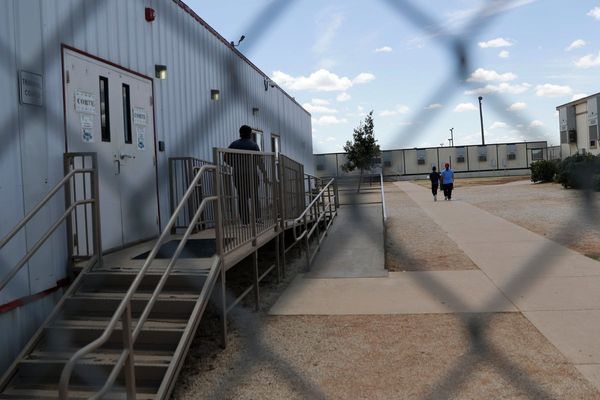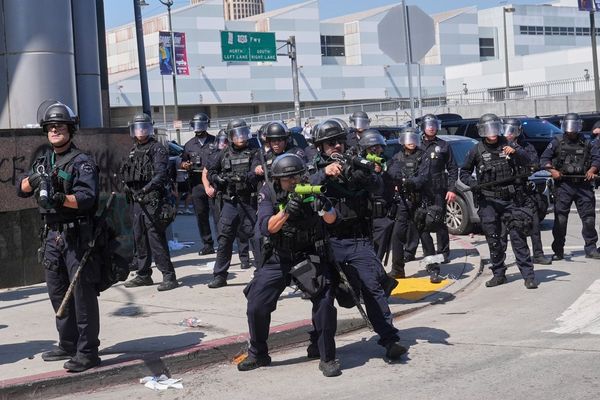It should never have come to this. The finding of an independent commission of inquiry set up by the United Nations that Israel has committed genocide against Palestinians in the Gaza Strip is as grave a charge as can be levelled against a sovereign government and the people who lead it. Israel, it is important always to concede, has its own case to make. The atrocities committed by Hamas on 7 October 2023 were the immediate trigger for this latest phase in a conflict that has been going on for decades. Those atrocities constituted a war crime – acknowledged as such by the UN.
Israel has the right to defend itself. But what it does not have the right to do is commit war crimes or genocide, and it was self-destructive to place itself in a position where such things can even be seriously discussed. Whether that was inevitable, driven by the domestic political needs of the prime minister, Benjamin Netanyahu, or in some sense the only way in which Israel felt it could survive, the state now dismisses the UN commission as another “distorted and false” report.
It has accused the three experts on the commission of serving as “Hamas proxies”, and of relying “entirely on Hamas falsehoods, laundered and repeated by others”, that had “already been thoroughly debunked”. This sounds ritualistic to the point of being unserious. The UN commission has laid out in detail its evidence, set against the relevant conventions, and much of it is in the public domain and appears irrefutable. If the Israeli government wants to challenge it, or provide its own evidence to the contrary, then it should do so without delay. It is not enough to say that Hamas has its own genocidal intent.
It is not even the first time that this most sensitive word, “genocide”, has been used in the context of the war in Gaza. The International Court of Justice in The Hague has, since the beginning of last year, been considering whether the State of Israel should be found guilty of that ultimate crime. Thus far the court has said that the claim is plausible, and it has ordered the Israeli government to suspend its military campaign.
Had Israel done so, it might have strengthened its defence, would certainly have saved lives, and would probably not have been faced with yet another damning indictment. That it has not confirms that Mr Netanyahu’s government has little interest in ending the fighting, let alone building a lasting multilateral peace settlement – not only with the Palestinian people (no one suggests Hamas as such can be a part of that) but also with Israel’s increasingly concerned neighbours and friends around the world.
Even now – and even with all the evidence and experience that shows the harm Israel is inflicting on its own security by its actions – the war goes on, and is even intensifying. The latest assault on Gaza City by the Israel Defense Forces, with the concomitant displacement of civilians, is, as the foreign secretary Yvette Cooper says, “utterly reckless and appalling”. As Ms Cooper argues, it will only bring more bloodshed, kill more innocent civilians, and endanger the remaining hostages. It is hardly conducive to getting desperately needed humanitarian aid into the area, or to relieving famine conditions.
What appears to be the systematic destruction of apartment buildings, schools and other infrastructure this week by the Israeli forces can only add to fears that the ultimate aim of Israel’s policy is to make the place uninhabitable. It is as if Mr Netanyahu has decided to take literally Donald Trump’s suggestion in January that the Gaza Strip is a “demolition site”, preparatory to its people leaving and its conversion into a US protectorate and beach resort. Mr Trump said at the time: “You’re talking about probably a million and a half people, and we just clean out that whole thing.” He added that such an exodus “could be temporary” or “could be long-term”. Either way it would amount to forced expulsion, a further war crime.
The grim reality is that as long as President Trump is in power, or doesn’t change his mercurial mind, and Mr Netanyahu evades electoral or judicial removal from office, the situation will worsen in every way. The hostages will not be released. Hamas, or some reincarnation of it, will continue to terrorise Israelis and abuse the Palestinian people in Gaza. More innocents will die in the bombings, and from hunger, and yet more will be left destitute. Israel will continue to alienate potential regional partners, friends, and allies across the world.
Israel has widened the war to Iran, Lebanon, Yemen and now Qatar. Sometimes it has killed Hamas commanders or political leaders – and latterly, inexplicably, negotiators – but in all cases it has added to the region’s instability, if not to the hatred and resentment aimed at Israel. Contrary to some claims, Iran’s nuclear programme has not been irrecoverably destroyed.
At their recent joint summit, members of the Arab League and the Organisation of Islamic Cooperation discussed tearing up the Abraham accords and earlier peace treaties with Israel. The EU and the UK are edging towards sanctions – an unbelievable state of affairs. Even with help from the United States, Israel cannot prosper in isolation, and it can never be truly secure if it finds itself surrounded again by hostile armies and bands of terrorists.
The prime minister, Sir Keir Starmer, should gently raise these awkward arguments during his meetings with President Trump. He has a moral duty to do so, in the interests of Israel itself. Mr Netanyahu’s conduct during the war has made his people less secure, not more so. The sooner the fighting stops, just as the International Court of Justice has ordered, the better.







